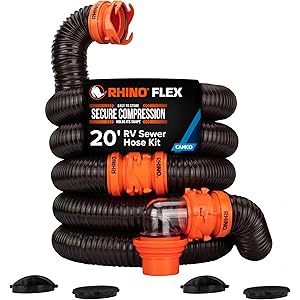When I first considered the idea of buying a mobile home in California, I had a mix of excitement and apprehension. The state is known for its high real estate prices and the allure of the sunny lifestyle, but the mobile home market seemed like a viable alternative to traditional housing. After thorough research and consideration, I would like to share my insights into whether purchasing a mobile home in California is a good idea. Let’s dive into the pros and cons together!
The Appeal of Mobile Homes in California
Before we delve into the pros and cons, let’s explore why mobile homes might catch your interest in California. The state is notorious for its steep housing costs, particularly in urban areas like San Francisco, Los Angeles, and San Diego. A mobile home can serve as a more affordable option without sacrificing the California dream.
- Affordability: Mobile homes typically cost significantly less than traditional homes, making them an attractive option for first-time buyers or those on a tight budget.
- Flexibility: Many mobile homes offer the option to relocate, which can be beneficial if your circumstances change.
- Community Living: Mobile home parks often foster a sense of community, with residents sharing common amenities and social activities.
- Low Maintenance: Compared to traditional homes, mobile homes are generally easier to maintain, with fewer repairs and upkeep needed.
Pros of Buying a Mobile Home in California
1. Cost-Effective Housing Solution
One of the most significant advantages of buying a mobile home in California is the cost savings. According to the California Department of Housing and Community Development, the average price of a mobile home is around $100,000 to $200,000, compared to the median home price in California, which hovers around $800,000. This affordability opens the door to homeownership for many individuals and families who may otherwise be priced out of the market.
2. Lower Utility Bills
Mobile homes are often more energy-efficient than traditional homes due to their size and construction materials. This can lead to lower utility bills, providing additional savings for homeowners. Many mobile homes come equipped with modern appliances that are designed to save energy, further reducing monthly expenses.
3. Community Amenities
Living in a mobile home park can offer access to a range of community amenities that might not be available in traditional neighborhoods. Many parks feature swimming pools, clubhouses, and recreational facilities. This sense of community can be especially appealing for retirees or families looking to make connections with their neighbors.
4. Quick Move-In Ready Options
With many mobile homes available as pre-owned or new models, you can often find homes that are move-in ready or require minimal renovations. This convenience can be a massive benefit for those looking to settle down quickly without the extended timeline often associated with traditional home purchases.
5. Flexibility in Location
As California is home to diverse landscapes—from beaches to mountains—living in a mobile home allows for flexibility in location. Whether you want to be close to the coast or nestled in the mountains, mobile homes are often found in various settings, allowing you to choose a lifestyle that suits your preferences.
Cons of Buying a Mobile Home in California
1. Depreciation of Value
One of the most significant drawbacks of buying a mobile home is the potential for depreciation. Unlike traditional homes that tend to appreciate over time, mobile homes often lose value, especially if they are not located on owned land. This can be a disadvantage if you plan to sell your mobile home in the future.
2. Financing Challenges
Financing a mobile home can be more complicated than securing a mortgage for a traditional home. Many lenders view mobile homes as personal property rather than real estate, which may result in higher interest rates and less favorable loan terms. I found this to be a critical factor to consider when budgeting for my potential purchase.
3. Maintenance Costs
While mobile homes generally require less maintenance than traditional homes, they can still incur costs that are often overlooked. For example, if you are in a mobile home park, you may have monthly lot fees that can be quite high. Additionally, repairs and upkeep of the home itself can still add up, especially if major systems like plumbing or electrical need attention.
4. Limited Space
Mobile homes typically offer less living space than traditional homes, which can be a significant consideration if you have a large family or plan to host guests frequently. It’s essential to evaluate whether the space will meet your long-term needs before making a decision.
5. Zoning and Land Use Restrictions
In California, zoning laws can be strict, and not all areas allow mobile homes. Additionally, if you plan to place your mobile home on a piece of land, you need to ensure that the property is zoned for such use. This research can be time-consuming, and it adds another layer of complexity to the buying process.
Case Studies: Real-Life Experiences
To provide a more comprehensive view, let’s explore some real-life experiences of individuals who have purchased mobile homes in California.
Case Study 1: The Retiree Couple
A retiree couple in their late 60s decided to downsize and purchased a mobile home in a senior community in Southern California. They found that the lower cost of living allowed them to enjoy their retirement without financial stress. They appreciated the community aspect of the park, which provided them with social activities and a supportive environment. However, they did encounter challenges with maintenance and had to budget for unexpected repairs.
Case Study 2: The Young Family
A young family with two children purchased a mobile home in Northern California as their first home. They loved the affordability compared to traditional housing options in the area. However, they quickly realized that the limited space was a challenge as their children grew. They had to make creative use of their space and learned to adapt their lifestyle to fit their new home.
Case Study 3: The Investor
A real estate investor purchased several mobile homes across California, looking to capitalize on the demand for affordable housing. While the initial returns were promising, he faced challenges with financing and property management. He found that maintaining multiple properties required more time and resources than he initially anticipated.
Statistics on Mobile Home Ownership in California
Understanding the landscape of mobile homes in California can provide valuable insights into this housing option. Here are some key statistics:
- The state of California has over 500,000 mobile homes, according to the California Department of Housing and Community Development.
- Approximately 10% of California residents live in mobile homes, with a significant portion residing in mobile home parks.
- Mobile homes can appreciate in value when located on owned land, contrary to the general perception of depreciation.
- In California, mobile home park rent can range from $500 to $1,500 per month, depending on location and amenities.
Making the Decision: Is It Right for You?
Deciding whether to buy a mobile home in California ultimately depends on your personal circumstances and goals. Here are some questions to consider:
- What is your budget for housing?
- How important is community living to you?
- Are you comfortable with the potential for depreciation?
- Do you prefer flexibility in your living situation?
- What are your long-term plans for your housing situation?
By reflecting on these questions, you can make a more informed decision that aligns with your lifestyle and financial goals.
Conclusion: Weighing the Pros and Cons
Buying a mobile home in California can be a fantastic opportunity for those seeking affordable housing in a state known for its high real estate prices. The pros, such as cost-effectiveness, lower utility bills, and community living, can be compelling. However, the cons, including potential depreciation, financing challenges, and maintenance costs, should not be overlooked.
Ultimately, the decision to purchase a mobile home should be based on personal circumstances, future plans, and thorough research. I encourage you to weigh the pros and cons carefully, and if you decide to take the plunge, approach it with a clear understanding of what to expect.
Frequently Asked Questions (FAQ)
1. Are mobile homes a good investment in California?
Mobile homes can be a good investment if purchased wisely, particularly if you buy a home on owned land. However, it’s essential to consider the potential for depreciation and other factors.
2. What are the financing options for mobile homes?
Financing options include personal loans, chattel loans, and FHA loans for manufactured homes. It’s advisable to shop around for the best rates and terms.
3. Can I put a mobile home on my own land in California?
Yes, but you must ensure that the land is zoned for mobile home use and meets local regulations.
4. What are the typical costs associated with owning a mobile home?
Costs include the purchase price, lot rent (if applicable), insurance, maintenance, and utilities. It’s crucial to budget for these expenses upfront.
5. How can I find mobile homes for sale in California?
Mobile homes can be found through real estate websites, local classifieds, and mobile home parks. Networking within community groups can also yield leads.
Thank you for reading my insights on mobile home ownership in California! If you found this article informative, please consider signing up for our newsletter for more valuable content. Don’t forget to share this article with friends and on social media!
Camco RhinoFLEX 20-Ft RV Sewer Hose Kit - Features Clear Elbow Fitting w/Removable 4-in-1 Adapter - Connects to 3” Slip or 3”/3.5”/4” NPT Threaded Sewer Connection (39742)
$61.38 (as of November 13, 2025 07:53 GMT -03:00 - More infoProduct prices and availability are accurate as of the date/time indicated and are subject to change. Any price and availability information displayed on [relevant Amazon Site(s), as applicable] at the time of purchase will apply to the purchase of this product.)
Sign up for our newsletter and stay up to date with exclusive news
that can transform your routine!





